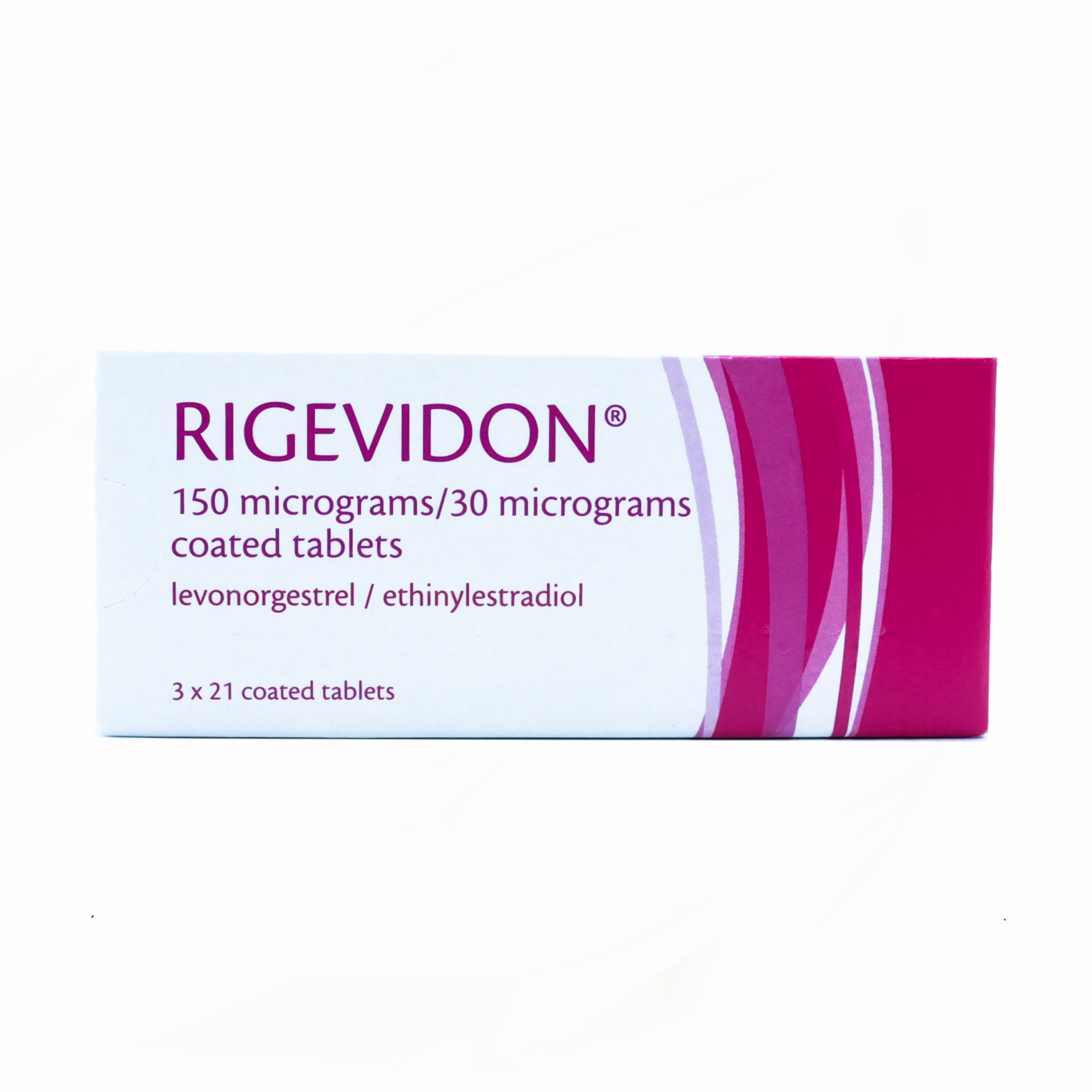Rigevidon

Fastest delivery:
Order by 12:00pm
-

GMC and GPhC-regulated clinicians
Expert care from GMC and GPhC-regulated clinicians. Trust in professional medical advice and treatments tailored to your needs.
-

100% UK-based pharmacy
Our team of doctors and prescribers, and our support staff, are all UK-based.
-

Free support and advice
We're on hand to offer free support and advice by email and telephone (Mon - Fri 08:30 - 17:00).
-

GP-Led Prescribing
Expert care from GP-led clinicians. Receive professional, trusted medical advice and treatments tailored to your needs.
Description
How Does Rigevidon Work?
A woman becomes pregnant when an egg discharged from the ovaries is fertilised by a sperm. Ovulation is the process through which the ovaries release one egg each month during a typical menstrual cycle. Progesterone and oestrogen regulate this process. Rigevidon comprises the synthetic hormones levonorgestrel and ethinylestradiol, which manipulate the levels of each hormone to prevent the release of an egg. The pill makes it more difficult for sperm to reach the uterus. Fertilisation and embryo implantation fail to take place, resulting in a light period.
Warnings
Rigevidon is not suitable for you if you have the following conditions;
- An allergy to any of the ingredients of Rigevidon.
- A history of breast, uterus, or cervix cancer.
- Blood clotting disorder.
- A history of heart attack or stroke.
- Angina pectoris.
- Very high blood pressure.
- Severe diabetes and migraines.
- Impaired liver function.
Directions
Rigevidon is an oral drug that should be taken with the guidance of a healthcare professional and only after reading the instructions.
- It should be taken at the same time daily for 21 days.
- After 21 days, take a seven-day break where you will experience bleeding.
- Start your new pack on the same day as the first after the seven days break.
Ingredients
Rigevidon contains these two active ingredients: 150 micrograms of levonorgestrel and 30 micrograms of ethinylestradiol.
Rigevidon also contains the inactive substances, Colloidal anhydrous silica, magnesium stearate, talc, maize starch, lactose monohydrate, sucrose, calcium carbonate, titanium dioxide (E171), copovidone, macrogol 6000, and povidone carmellose sodium.
Side Effects
Just like any other contraception, some people may experience mild side effects when using Rigevidon. Check with your doctor if you have any concerns regarding women's health or the following side effects.
- Abdominal cramps
- Headaches
- Feeling sick
- Breast tenderness
- Weight gain
- Mood changes
- Change in sex drive
- Irregular bleeding
- Increased blood pressure
If you experience severe side effects, contact your healthcare provider.
FAQs
1. How do I take Rigevidon?
Take one tablet daily for 21 days, followed by a 7-day break. During the break, you will usually have a withdrawal bleed (similar to a period).
2. What if I miss a pill?
If you miss a pill, take it as soon as you remember. If more than 12 hours late, additional contraception (e.g., condoms) may be required for the next 7 days.
3. Can Rigevidon help with period regulation?
Yes, Rigevidon can help regulate periods, reduce menstrual pain, and make periods lighter.
4. Can smokers use Rigevidon?
Women over 35 who smoke are generally advised to use a different form of contraception due to an increased risk of cardiovascular side effects.
5. Is it suitable for everyone?
Rigevidon may not be suitable for women with a history of blood clots, certain cancers, or liver disease. Always consult your healthcare provider.


